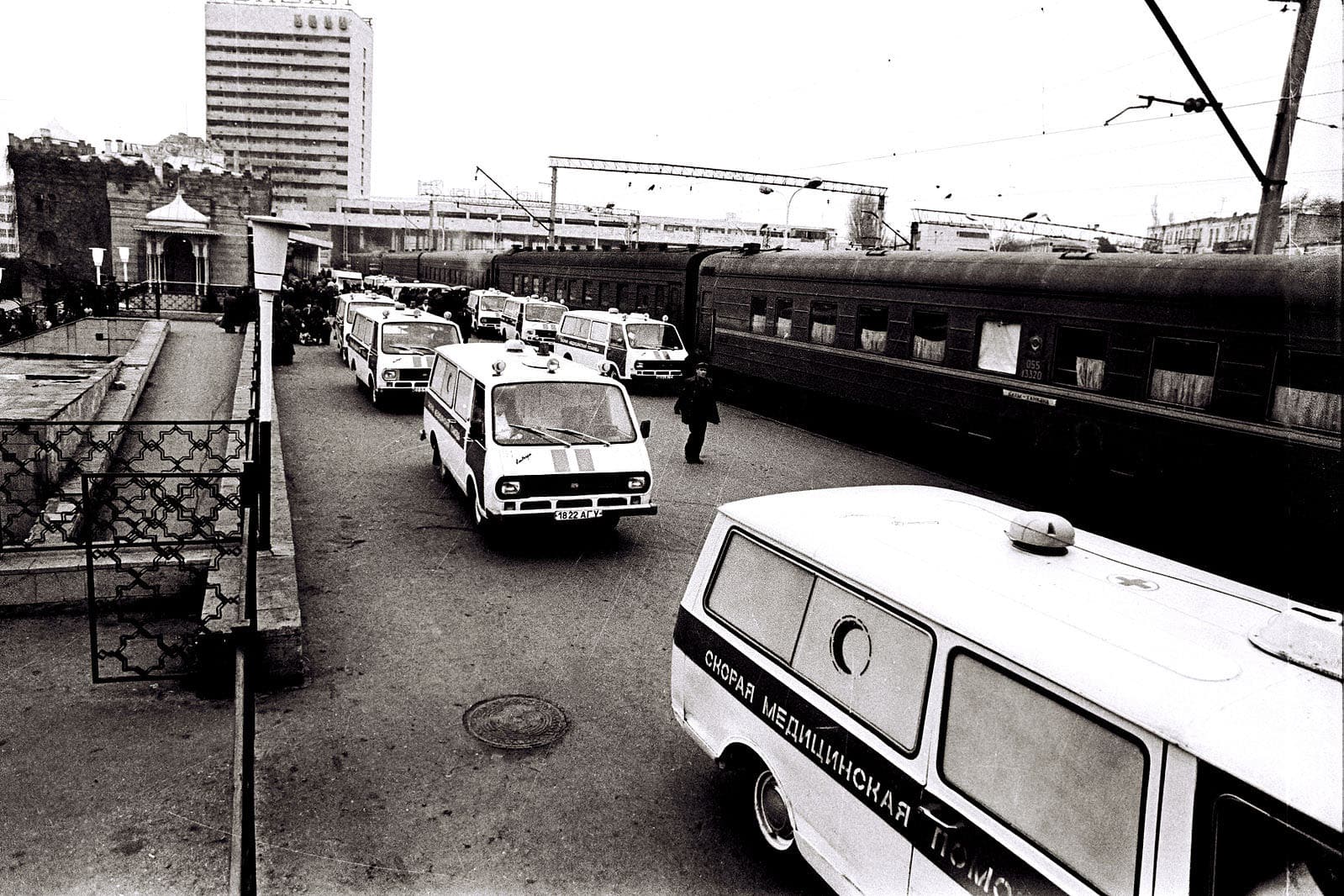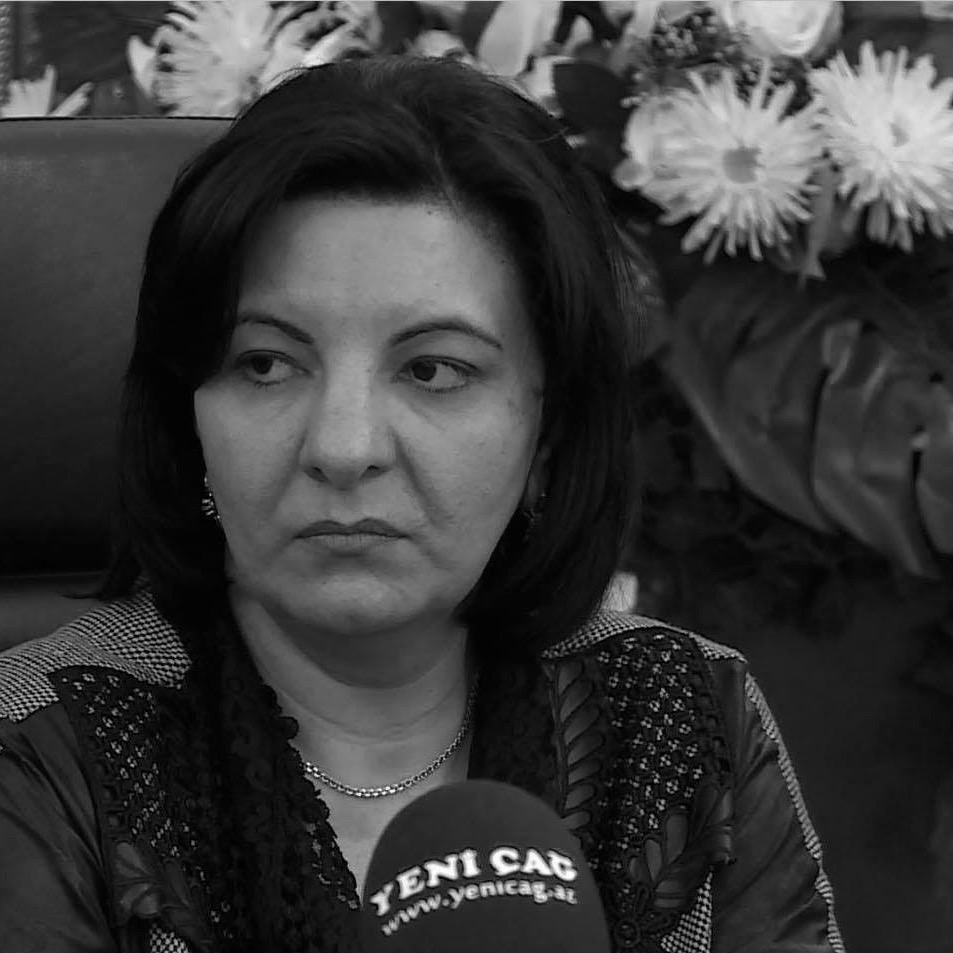
This has not been an easy year for me. As I approach the upcoming 32nd anniversary of the Khojaly Massacre, an event that forever altered the course of my life, I face the world as a cancer patient. The immense challenge to my physical well-being has allowed me a profound reflection on the meaning of my life, and everything I have experienced up until today, and how it all connects to the world around me, to the place my daughter and her future children will continue walking once I have left.
On the evening of February 25, 1992, Armenian insurgents stormed my idyllic hometown of Khojaly, in the Garabagh region of Azerbaijan. On that night, civilians, my family included, fled into the streets, fields and forest while the invading forces fired directly at us. Armenian soldiers waited in those fields and forests and murdered Azerbaijani men, women, children and the elderly – a total of 613 people that night – with bullets and bayonets. The varied cruel measures of terroristic murder happened across Khojaly that night and into the following day.
I was captured while fleeing on foot, and held as a prisoner in an Armenian torture camp. I was 20 years old, fresh out of school. The Armenian soldiers mutilated, violated, injured and eventually released me as a trade for cigarettes and gasoline – such was my worth to the hateful enemy that came for my life and took the lives of so many innocent people.
Today, as I continue treatment toward a full recovery and strive forward with my advocacy work for survivors, and especially for women, I pray tirelessly for the sake of those who have survived the brutality of criminal war, and for the families and friends across the world that lost so much precious life, and most especially for those who remain in captivity today. I shudder at the gross misinformation flying across global media, especially social media, denying and justifying the violence perpetrated against innocent, unarmed civilians, in the conflicts of today. After Khojaly, we survivors and the entire nation of Azerbaijan have since endured decades of similar misinformation campaigns. As a survivor of captivity and torture, I am not sure which has been more painful – the injuries that required multiple spinal surgeries to recover from, or that Armenia and its lobby around the world claimed it never happened.
For that and many other reasons, the outpouring of support and solidarity from the Jewish community has been a major source of inspiration, comfort and recognition of what I and so many others endured in Khojaly. For example, in 2015, I visited the Jewish community of Los Angeles, where in the Pico Robertson neighborhood, a synagogue held a memorial for the anniversary of the Khojaly Massacre. The Rabbi of Pico Shul, Rabbi Yonah Bookstein, read the Yizkor service, to commemorate those that did not survive Khojaly, and a meal was shared – the Muslim survivors of Khojaly and members of the Los Angeles Azerbaijani community, and the Jewish congregation. Many tears were shed that day, and many friendships formed. It was a day of pure kindness and solemn connectivity in light of our shared experience as persecuted communities. In the years to follow, similar events such as a memorial at Nessah Synagogue, events with the American Jewish Committee and the Museum of Tolerance, have further deepened the closeness of Khojaly survivors, and the Jewish community of Los Angeles.
In 2015, Israel’s President Reuven Rivlin famously commented, in his remarks to the UN General Assembly on the International Day of Commemoration in Memory of the Victims of the Holocaust. “On this day we must ask ourselves honestly – is our struggle, the struggle of this Assembly, against genocide, effective enough? Was it effective enough then in Bosnia? Was it effective in preventing the killing in Khojaly?”
Last September Azerbaijan restored its sovereignty over its entire internationally recognized territory, including Khojaly. The city is now being rebuilt and soon the first families of victims and survivors of the Khojaly Massacre will return to live there forever.
I also believe peace and friendship is obtainable with our Armenian neighbors, with those that have left Garabagh and those who remain. I hope those Armenians who left Garabagh will return and live with us peacefully, together again.
Clearly, the struggle is far from over for the survivors of Khojaly, as the perpetrators of this massacre are still at large living in Armenia and beyond. But we who have survived, we who stand unwaveringly together for the values of humanity, tolerance, acceptance and love – we can be the force that pushes this world to a place where “Never Again’ truly means never again.


































 More news and opinions than at a Shabbat dinner, right in your inbox.
More news and opinions than at a Shabbat dinner, right in your inbox.